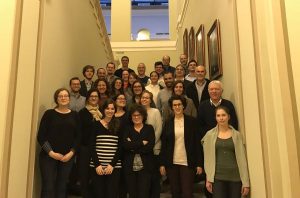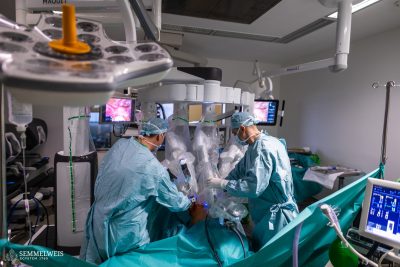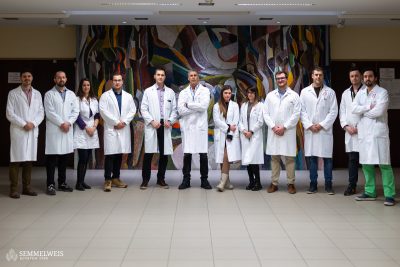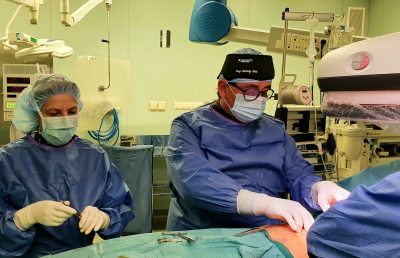The fifth plenary session of the members of the m-Resist programme was held at Semmelweis University. M-Resist is a multi-component programme based on information technology applications for treatment-resistant schizophrenia. The international project’s duration is 3 years and Hungary is represented by Semmelweis University’s Department of Psychiatry and Psychotherapy.
 30-50 percent of patients suffering from schizophrenia are treatment-resistant, who do not respond to currently available medications. The m-Resist project is an international collaboration funded by the European Union’s Horizon 2020 programme. Dr. Zsolt Unoka, assistant professor of the Department of Psychiatry and Psychotherapy said that applications using IT technology are being developed to help schizophrenic patients.
30-50 percent of patients suffering from schizophrenia are treatment-resistant, who do not respond to currently available medications. The m-Resist project is an international collaboration funded by the European Union’s Horizon 2020 programme. Dr. Zsolt Unoka, assistant professor of the Department of Psychiatry and Psychotherapy said that applications using IT technology are being developed to help schizophrenic patients.
“One of the applications is a smart watch that detects heart rate and movement, as well as a smart phone that enables the tracking of the patient’s social activities. The content of the messages and phone calls are not accessible for the researchers, but their numbers and frequency could provide them with valuable information regarding the patient’s condition. A high level predictive model is linked to the data mining tools, which helps to forecast the possible decline of the patient’s conditions.”, Dr. Zsolt Unoka said.
The smart watch shows the alternation of the sleep cycles and the smart phone enables the analysis of changes in the frequency of social interactions, thus indicating the deterioration of the patient’s condition.
An application promoting a healthy and active lifestyle is also part of the programme as modern antipsychotics could play a significant role in weight gain and the acquisition of type 2 diabetes. Moreover, cognitive therapeutic intervention can be requested via telephone. If the system detects a change in the condition of the patient help is offered, which could be either psychotherapy or assistance from family members.
 Finland, Italy, Greece, Spain, Israel and Hungary participate in the project and the latter three are going to conduct clinical trials with 15 subjects from May to July. First, healthy volunteers will test the devices and their feedback could provide a basis for further development. Apart from Dr. Zsolt Unoka, Dr. István Bitter, professor, Dr. Kinga Farkas, assistant lecturer and Kata Fazekas, psychiatrist take part in the project from the Department of Psychiatry and Psychotherapy.
Finland, Italy, Greece, Spain, Israel and Hungary participate in the project and the latter three are going to conduct clinical trials with 15 subjects from May to July. First, healthy volunteers will test the devices and their feedback could provide a basis for further development. Apart from Dr. Zsolt Unoka, Dr. István Bitter, professor, Dr. Kinga Farkas, assistant lecturer and Kata Fazekas, psychiatrist take part in the project from the Department of Psychiatry and Psychotherapy.
The members of the project hold meetings every half year to discuss further steps, and the first one in 2017 was hosted by Semmelweis University.
Pálma Dobozi
Translation: Ágnes Raubinek


